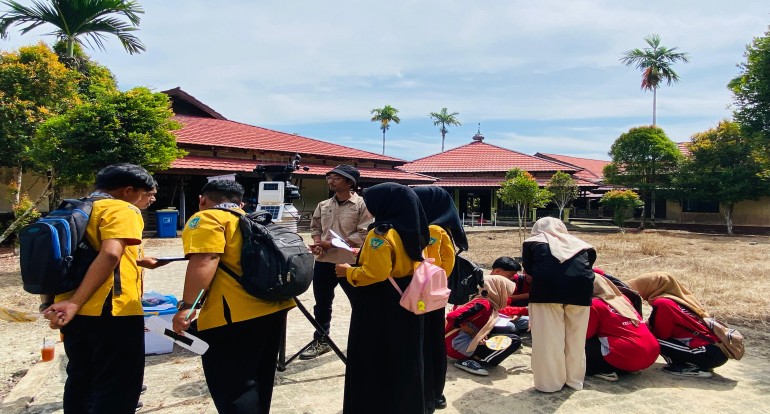


Sambas, July 19, 2025 — The Department of Physics, Faculty of Mathematics and Natural Sciences, carried out a Community Service Program (Pengabdian Kepada Masyarakat / PKM) in Sambas Regency, targeting two key educational groups: high school physics teachers and students.
The Physics Study Program organized an activity entitled "Training on the Use of AI Tools for Scientific Writing", aimed at empowering physics teachers to integrate Artificial Intelligence (AI) into their teaching process.
Participants were introduced to the basics of AI, how to craft effective prompts, and how to create interactive and innovative teaching materials. The training aimed to enhance teacher creativity and simplify the delivery of complex physics concepts in the classroom.
Simultaneously, the Geophysics Study Program conducted "Field Education and Demonstration of Physics and Geophysics Equipment" for high school students.
This activity was designed like an open-air science camp, where students explored the world of physics and geophysics through hands-on experiments and the use of professional instruments.
Highlights included:
Sky observation using telescopes and finderscopes
Learning about parabolic motion and heat through ice cream-making experiments
Radioactivity detection and microcontroller applications
Hands-on experience with geoelectric tools, Automatic Weather Station (AWS), and flowmeters
Identifying soil layers and rocks using geological hand lenses
The event was officially opened by Mr. Asep Sjariffudin, Head of the Sambas High School Principals Working Group (MKKS), who gave an encouraging speech and inaugurated the program.
Introductions to each study program were delivered by:
Dr. Azrul Azwar, S.Si., M.Si. (Physics)
Dr. Yoga Satria Putra, S.Si., M.Si. (Geophysics)
As a symbolic gesture of academic collaboration, Dr. Bintoro Siswo Nugroho, Head of the Department of Physics, handed over event booklets and handouts to the Head of MKKS.
The program concluded with an interactive quiz, which brought excitement and reinforced learning for all participants. Both teachers and students enthusiastically took part in every session, many expressing that the activities opened up new perspectives on engaging, applied science learning.
Through this Community Service Program, the Department of Physics reaffirmed its commitment to bringing science beyond the classroom—engaging directly with educators and students in the community.